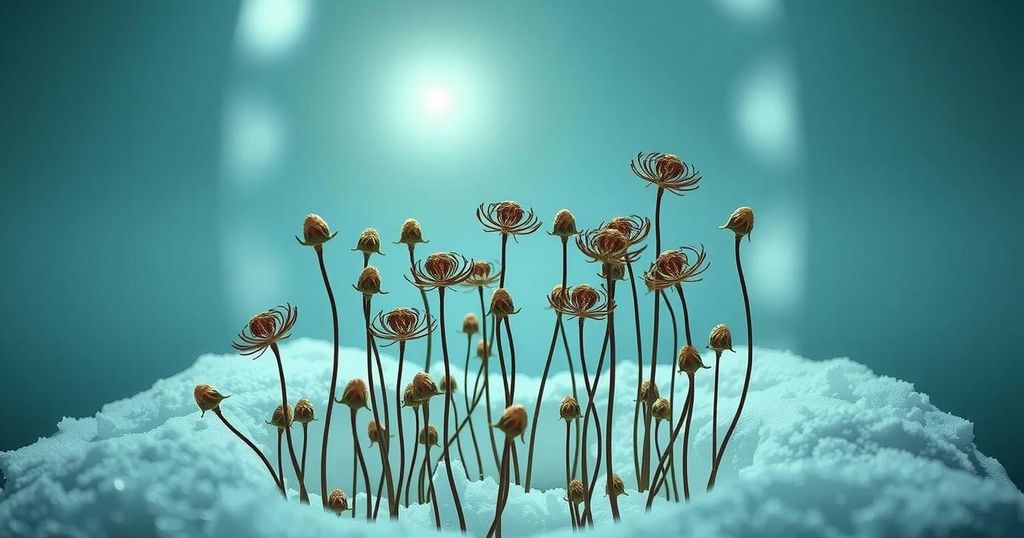The Global Seed Vault in the Arctic has received a significant deposit of seeds, including 21 Palestinian varieties, amidst ongoing conflict in Gaza. This facility protects plant diversity against global threats and emphasizes the importance of agricultural resilience in ensuring food security for a growing population.
In a recent addition to the Global Seed Vault, a facility located in the Arctic aimed at preserving global plant diversity, thousands of seed samples have been deposited, including 21 varieties from Palestine in the context of ongoing conflict and food insecurity in the Gaza region. Opened in 2008, this vault, situated in Norway’s Svalbard archipelago, serves as a safeguard against crises such as natural disasters, climate change, and armed conflicts. On Tuesday, more than 30,000 seed samples from 23 organizations across 21 countries were safely stored within the vault, also referred to as “Noah’s Ark” for food crops. These seeds are crucial for sustaining a growing global population facing environmental challenges. The Palestinian seeds were contributed by the Union of Agricultural Work Committees, a non-profit organization dedicated to agricultural development. The Crop Trust, which collaborates on this initiative, has announced plans to introduce additional seeds from war-affected Sudan in February. According to Crop Trust director Stefan Schmitz, the persistent threats from climate change and conflict compromise food security for over 700 million individuals worldwide. The Global Seed Vault is fortified to withstand various catastrophes and is strategically placed to remain unaffected by rising sea levels or conflicts. It functions optimally even in the event of refrigeration failure, thanks to the surrounding permafrost that helps maintain a stable, cold environment for the seeds.
The Global Seed Vault was established to serve as a backup storage facility for the world’s seeds, ensuring that genetic diversity is preserved for future generations. Located in a remote area of the Svalbard archipelago, Norway, the vault offers a secure site to protect against various global threats including wars, climate shifts, and natural disasters. Since its inception in 2008, the vault has received seeds from numerous countries, reflecting a collaborative effort to safeguard food crops that are integral to human sustenance. The recent deposit of Palestinian seeds highlights the urgent need for food security in regions facing conflict, emphasizing the role of biodiversity in resilience against ongoing challenges.
In conclusion, the recent deposit of Palestinian seed varieties into the Global Seed Vault underscores the critical importance of preserving agricultural biodiversity, particularly in contexts of war and climate change. With over 30,000 samples deposited from various nations, the vault continues to serve as a pivotal resource for food security worldwide. The ongoing commitment to augment this collection exemplifies a collective effort to safeguard against the unpredictability of the future regarding food supply and ecological stability.
Original Source: phys.org






